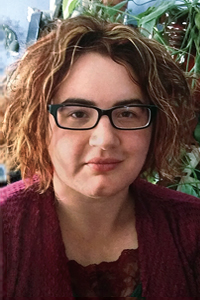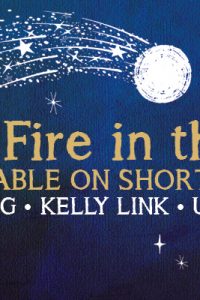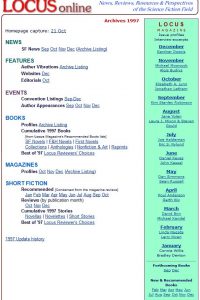Kameron Hurley: How to Write a Book in a Month

We all want to learn how to write books faster. The pace of the news cycle today has heated up to such an extent that for those of us who aren’t in the 1% of writers, if we don’t come out with a book a year, it feels like the world has forgotten us amid the buzz of ever more intensifying world horror. I’m not immune to this pressure. Juggling a day job, a book a year (writing), a book a year (promoting), and completing various freelance articles like this one takes its toll. Stuff goes out late. It’s pushed out. It squeezes in just under the wire (like this column). At some point when you’re on the writing treadmill, it feels like you’ve gotten so behind that you’ll never catch up again.
There are, roughly, two paths you can follow when you feel the hot breath of deadline failure coming your way. You can cancel or push out all of your work in order to just get yourself out from under it (and I know several writers who recently cancelled their contracts because the pressure to deliver became too much. Really), or you can pour a drink, book a cabin in the woods or a hotel room away from your regular life, and buckle down and do what you were born to do. You write your way out.
I’ve been relying on a combination of these two approaches for the last two years. Sneaking one book into my already full writing schedule in 2015 or so ended up being disastrous for everything that came afterward. Here I am, two years later, nursing a whisky and wondering how I’m going to finish the last book in my fantasy trilogy in exactly three weeks. And as far as career writer problems go, this is not an uncommon place for me to be.
I wrote the last half of my last book, The Stars are Legion, in four days in a cold cabin in the woods up in the Hocking Hills outside Columbus OH. There was no wi-fi and no heat, which meant it was just me and a lot of firewood to keep me warm, because there was still snow on the ground. I completed that book because I sat down with my agent the week before and figured out exactly what the book was about and what had to happen next. I had it all written up in a nice, neat outline, and I did nothing but eat and write and feed firewood into the fireplace for four days.
It was heavenly.
When I dreamed of being a writer in my teens, it was this cabin-in-the-woods part I dreamed about. I wanted to spend my days alone, chopping firewood, and throwing a ball for a couple of dogs, and writing. Everything else that I have since learned comes with the job – the appearances, the blog tours, the interviews, the podcasts, the news bites, the reviews, the conventions – wasn’t even on my radar. What I always wanted was the cabin in the woods.
Maybe that’s why it’s easier to write there, now, because it’s exactly what I want to be doing with my life. As I buckle down and prepare to spend a full week out there this time in an attempt to finish my latest work, I can’t help but look forward to the quiet. Silence. No cars. No trains. No people. No incessant email. No twitter DM’s. No more Facebook mentions. Just me and the words, the way it’s meant to be.
Why does a career as a writer now involve so very much that isn’t writing the work? Why must we not only write a great book, but be able to yell about it, and then head off to a day job that subsidizes it? Balancing these two parts of ourselves – the promotion brain and the writing brain – is like being two entirely different people. When I am out in the woods, I know which one I am. When I’m back here at home, I have to somehow be both, and perhaps that’s the part that I find most maddening, this dissonance I must live with for the majority of my days, weeks, months, years; the dissonance of being a writer, knowing who I am, but knowing that who I am is not enough to thrive in this world. I have to learn all of these other skills. I need to learn to be loud and decisive. I must be a designer and a marketer, a theatric extrovert and entertainer, a business person, a record keeper, and above all, be all of this and pretend I’m a normal functioning adult who can take care of myself. That’s a hard ask. Always has been, in every age. Always will be.
But you came here because of this article’s title, of course. You came here because you, too, like me, want to know how to write a book in a month, which is the primary activity I am about to engage upon and will hopefully have completed by the time you read this. When I answer tough questions from new writers, they all want to know the tricks: ‘‘How do you know if this should be first person or third?’’ or ‘‘How do you know when you’ve done enough research?’’ or ‘‘How do you know where to start?’’ and the cold, hard truth of that is that you very often don’t know. You write it and you figure it out as you go. You write dozens or hundreds of pages of nonsense, and you hope that you figure it out there on your journey. Then you throw all that stuff out once you’ve figured it out, and you start again.
The panic that wells up in me when I know I have to deliver a title or watch the release date roll back is often sufficient enough to get the words to pour out of me. I outline my work ruthlessly before I begin, and I book my cabin, and I turn off the world, and I teach myself how to listen to the woods again. I give myself the time to become who I wanted to be, who I really am, under all the hustle and liquor and corporate hobnobbing and content marketing. Scraping away all of those things I have acquired – like a crab who has collected junk on its shell – helps me feel the freedom I need to do what I was born to do, what feels right to do, what I have wanted to make of my life since I knew it was a possibility, and that’s just… writing. I find the freedom to be a writer.
Increasingly, those periods in which I’m free to be ‘‘just’’ a writer come less and less often. I’ve had to start manufacturing them. They are no longer organic to how I live my life. There’s a sadness in that. It’s the sadness that comes when you are about to get to the top of the mountain where you can rest, and then you see the next peak in the distance, and you realize how far, still, you have to travel.
You write a book in a month because you need to write another book in four months, and a book after that in 12. You write a book in a month because it’s what you’ve always wanted to do. You write a book in a month because it’s who you are, and it’s the only way to keep climbing.
Kameron Hurley is the author of The Stars are Legion and the award-winning essay collection The Geek Feminist Revolution, as well as the God’s War Trilogy and The Worldbreaker Saga. Hurley has won the Hugo Award, Kitschy Award, Locus Award, BFA Award, and Sydney J. Bounds Award for Best Newcomer. She was also a finalist for the Arthur C. Clarke Award, the Nebula Award, and the Gemmell Morningstar Award. Her short fiction has appeared in Popular Science Magazine, Lightspeed Magazine, and many anthologies. Hurley has also written for The Atlantic, Bitch Magazine, The Village Voice, and Entertainment Weekly. She posts regularly at KameronHurley.com.
From the April 2017 issue of Locus Magazine





